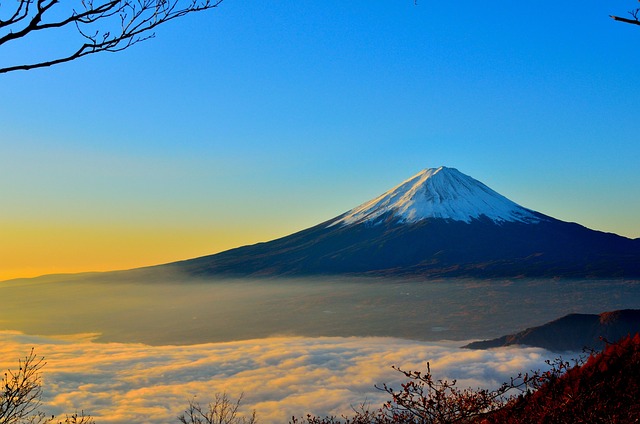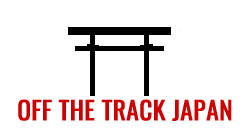
Japan is a country that should be on everyone’s travel wish-list someday. For those who are considering travelling to Japan, or just want to find out a little more about the in-depth culture, we have assembled what we think are the most commonly asked questions about Japan.
Quick Navigation
Getting to, and around Japan
Japan has 3 major airports which service a wide variety of destinations, Narita International Airport (NRT), Haneda International Airport (HND), and Kansai International Airport (KIX).
Both Narita and Haneda Airports are great for those starting their journey in Tokyo, while Kansai Airport is suited to those starting their Japan adventure in Osaka/Kyoto.
Japan has an extensive public transport network, and the train network in particular can get you to and from the major cities across the country.
Japan also has bullet trains, known as Shinkansen in Japanese, which can get you across large distances quickly.
Public transport is the mode of preference for most travellers in Japan, due to the accessibility and frequency available.
The Japan Rail Pass is a pass valid for tourists to Japan, which provides unlimited access on any Japan Rail (JR) line across the country, for a fixed period of time.
Japan Rail Passes do have a steep upfront cost, which mean that you do have to plan out your trip well in order to make sure that you are getting the best value for your money. However, a few return trips on the Shinkansen around the country will easily make up for the cost.
We have a separate article on the Japan Rail Pass, and other information that might be helpful. Read now.
The case to rent a car in Japan can certainly be made. Renting a car offers you a lot of freedom when exploring the country, and allows you to take a path less travelled by overseas tourists. That said, the existing rail network is more than enough for the majority of travellers.
However, parking – especially in large cities – is limited and costly, and highways are often toll roads. This can bring up the cost of renting a car greatly, and should be considered.
If you are wanting to get off the beaten track, then getting a car can help you do this much easier. There is plenty to see and do outside of the main canters, so we can recommend getting a car if you are wanting to see a different side of Japan than most other travellers.
See our article on how to use trains in Japan. Read Now.
As with any travel, it is not required, but it is highly recommended. It’s wise to ensure that you have the cover you need, in the unlikely event that you need it.
Culture & Etiquette
Simply put, a temple is a Buddhist place of worship, while a shrine is the place of worship for the Shinto faith.
Tattoo’s are quite taboo in Japan, and are often associated with organized crime. Because of this, you may be asked to cover your tattoos where possible
Japan is a very safe country, and boasts a low crime rate. Like any country however, it is important to note that low crime, doesn’t mean no crime.
Eating & Drinking
The drinking age in Japan is 20 years old. This is considered to be quite strict, and underage drinking can land you in a lot of trouble.
No, there is no tipping in Japan. If you try tipping, you may end up having your server chasing after you to return your money. In Japan, workers are paid a fair wage, and do not rely on tips to meet ends.
No, in Japan there is a strict no alcohol tolerance when it comes to driving. This even extends to the use of bicycles. Failure to comply with this could see you imprisoned or deported.
Here’s just a taste of what Japan has to offer:
You’d have to try very hard to find an area without a vending machine. Whether you are in the countryside, in the center of Tokyo, or climbing Mt.Fuji, You can probably find a vending machine pretty easily.
Convenience stores are a great place to get a bite to eat on the road. Otherwise, Japan has a number of fast food chains to try out.
Here are a few;
- Sukiya
- CoCo Ichibanya
- Sushiro
- MOS Burger
And of course, Japan also has western favourites, such as McDonalds, Wendy’s, Taco Bell etc.
Hotels
Japan has a couple different hotel styles that you might come across.
Capsule Hotels:
Capsule hotels are sleeping pods which fit 1-2 people. These are separated typically by male and female sleeping areas, and often have several beds in one room. They are a cheap place to rest your head.
Guesthouses:
Guesthouses are similar to the western style backpackers/hostel accommodation. Guesthouses typically have dormitory style rooms, and private rooms, with shared facilities such as kitchens, bathrooms etc. Guesthouses are typically very affordable.
Western Hotels:
If you are looking for familiarity, then Japan has plenty of western style hotels, and really offer the same experience globally as you would get at any hotel.
Ryokan:
Ryokans are traditional style Japanese hotels, often with futon beds with tatami flooring. Ryokans will usually server traditional Japanese meals in the on-site restaurant. Ryokan also typically have an onsen (Japanese hot pool), on-site – either indoor or outdoor. Ryokan prices range from around 150 USD per night, to upwards of 1000 USD per night, depending on a variety of factors.
Love Hotels (Adult only):
Love Hotels are usually themed, adult only hotels, where guests can rent a room for a short couple hour stay, to a overnight stay. As walls in Japan are thin, and a lot of houses are multi-generational, Love hotels offer guests with a much needed discrete and private space to be intimate with a peace of mind.
Check out our article on this very subject! Read now.
Short answer, Yes. Long answer, not to the same extent as other countries. There are a lot of regulations around what can be classed as a suitable accommodation option in Japan. As such, while AirBnB is used in Japan, the experience at accommodation is likely to be very different from most countries. This was done to protect the hotel sector, while ensuring that guests have a safe place to stay while in Japan.
Speaking of hotels…Have you booked your hotels for your next trip to Japan? If you haven’t you should really book as early as possible. Booking.com is a great platform to book all your a hotels on your trip to Japan.
Start planning your trip to Japan, book your accommodation now!
Police, Emergency & Natural Disasters
Japan has Police Boxes, known as Koban – which is a small neighborhood police station. Koban handle theft, and lost property mainly, but do also have other functions. If you need to file a report to the police for whatever reason, a Koban is the place to go.
Koban are often in easily accessible locations. If you do need assistance finding a Koban, don’t be afraid to ask the locals for directions to the nearest Koban.
For Police, call 110, and for Ambulance and fire services, call 119.
When calling the emergency numbers, the operator will answer in Japanese, and may not understand any of the language you speak. There are 3rd-party interpreters in a variety of languages than can assist.
Earthquakes are common in Japan, but larger ones which cause damage are more rare. In the event of an earthquake while in a public place, follow the lead of locals.
If you are at your hotel or your accommodation during an earthquake, ensure that you take cover under either a table or doorframe, and cover you head from any potential falling debris. You may not need to do this for every earthquake, but it is good practice to do this in the event that an earthquake gets stronger the longer it is shaking.
If you are near the coast and an earthquake strikes, keep an ear out for emergency messages to indicate whether or not a tsunami risk is present.
In the unlikely event that you are near the coast and earthquake strikes that is strong and/or long, be prepared to evacuate. Most coastal cities and towns have a P.A system to alert you of any danger if you are in an at risk area.
Coastal areas will also have tsunami evacuation signs, pointing you to the nearest evacuation point. Follow these signs to get to the safe areas.
Remember, you don’t need to wait for an official evacuation alert in order to get to safety. If you feel that you may be at risk, self-evacuate – taking only the essentials with you.
Still have unanswered questions? Fantastic! We are more than happy to take your questions if you have any more, and if we think your question can help other as well, we will add it to this list to help out future travellers!
